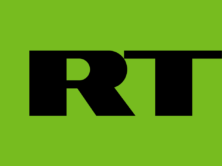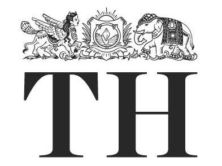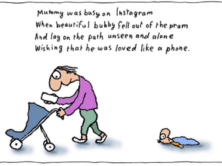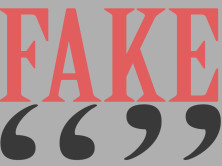Two journalists criticized Ghana's media ethics at an National Media Commission celebration. (Credit: GhanaWeb, screenshot)
A journalism professor advocated for a “comprehensive broadcasting law” in Ghana last week, Ghana Web reported.
The professor, Dr. Audrey Gadzekpo of University of Ghana’s communication studies school, made her call for a broadcasting law at the first anniversary celebration of the sixth commission of the National Media Commission. Gadzekpo is a member of the National Media Commission.
“We believe that the National Media Commission (NMC) has an important role to play in ensuring that our airwaves become the media for civility, tolerance, lively debate, information and education for the people and not a vehicle for crude insults and invectives,” she is quoted as saying.
According to Gadzekpo, broadcast journalism “has been inundated by unprofessional conducts, sensationalism and sheer abusive calumnies and invectives” because there is no “comprehensive broadcasting law.”
Ghana Business News also noted that Gadzekpo specifically suggested three media bills be updated. The bills are: Right to Information Bill, Broadcasting Bill, and Defamation Bill.
Likewise, Ghana’s National Media Commission chairperson emphasized the importance of adhering to journalism ethics at the same conference.
The chair, Ambassador Kabral Blay-Amihere, also criticized journalism ethics in Ghana, going so far to say that Ghana’s media is “becoming a threat to press freedom,” Ghana’s Business News reported.
According to Ghana Business News, journalist Blay-Amihere specifically called out the media for not acting as gatekeepers and for publishing “hate speeches, insults and pornography” on air.
He further said the media was irresponsible and politically polarized. According to Blay-Amihere, the media displays a “total disregard of the ethics of the journalism profession.”
“Other threats to press freedom he said are the extreme politicization and polarization of the media which compels the principles of objectivity, fairness and truth to be thrown to the dogs and bulls,” Blay-Amihere is quoted as saying.
Blay-Amihere attributed Ghana media’s compromised ethics to the “financial constraints of the private media in particular.”
To counter that problem, he suggested the “private sector…protect their wealth and business” by advertising and supporting the media.
National Media Commission explains on its website that its purpose is to promote “free, independent and responsible media so as to sustain democracy with a media that is independent from other organs of state.”
The NMC reports on its website that it was created by “an act of parliament” in July 1993.
iMediaEthics wrote last month when Ghana’s ruling political party called on the media to be more responsible. The party, Ghana’s National Democratic Congress’s Ashanti Regional Branch, issued a press release asking the media to follow media ethics and avoid media bias.
iMediaEthics has written to the University of Ghana seeking comment from Dr. Gadzekpo and the NMC seeking comment from Kabral Blay-Amihere. We will update with any response.





